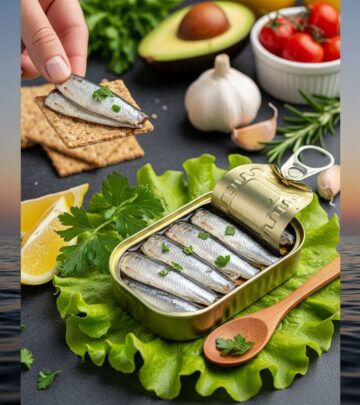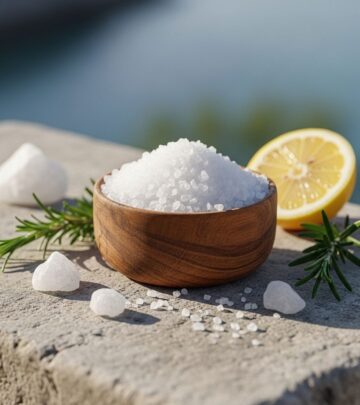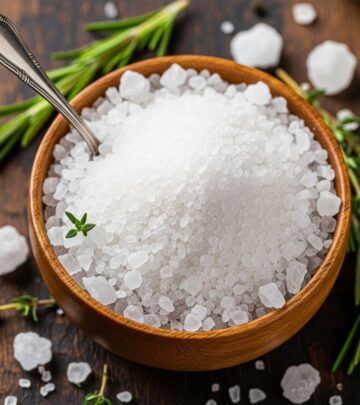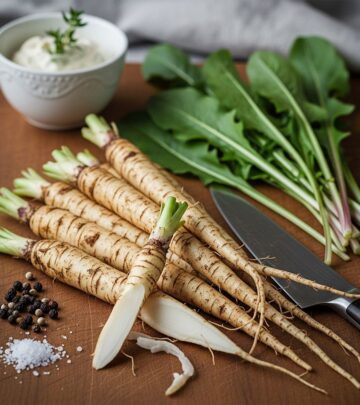Effective Home Remedies for Gastritis: Natural Ways to Soothe Your Stomach
Natural ingredients and lifestyle tweaks combine to calm inflammation and aid healing.
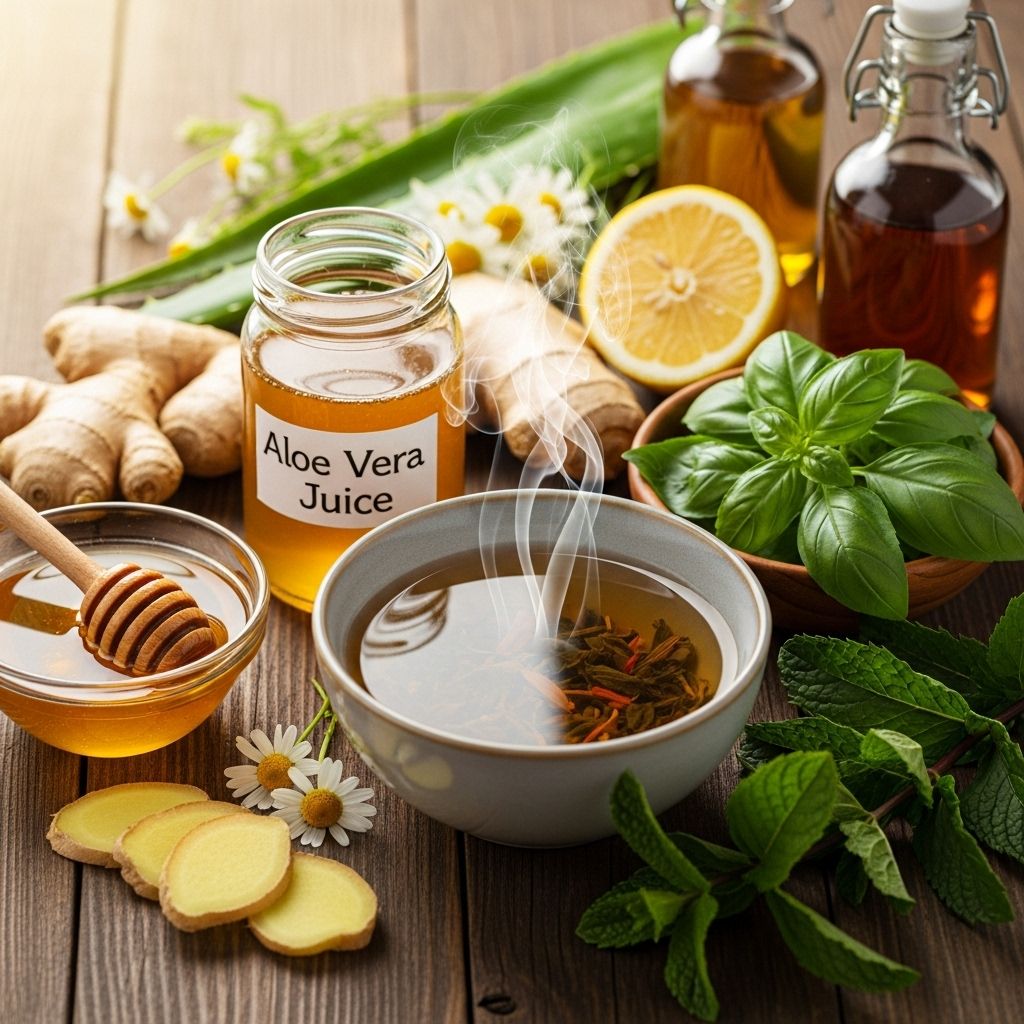
Effective Home Remedies for Gastritis
Gastritis is a common digestive condition characterized by inflammation, irritation, or erosion of the stomach lining. Causes range from bacterial infections (especially Helicobacter pylori), excessive alcohol intake, stress, and long-term use of NSAIDs. While medical treatment may be necessary for some cases, many people can find relief from gastritis with natural remedies, dietary adjustments, and lifestyle changes. This article explores proven home remedies and practical tips to soothe gastritis symptoms and foster gut healing.
Table of Contents
- What is Gastritis?
- Symptoms and Causes of Gastritis
- Top Home Remedies for Gastritis Relief
- Dietary Guidelines: What to Eat and What to Avoid
- Sample Gastritis-Friendly Recipes
- Lifestyle Modifications for Lasting Relief
- Frequently Asked Questions (FAQs)
What is Gastritis?
Gastritis is defined as the inflammation or irritation of the stomach’s protective mucosal lining. This condition can occur suddenly (acute gastritis) or develop gradually over time (chronic gastritis). Untreated gastritis may lead to ulcers, bleeding, or increase the risk of stomach cancer in rare cases.
Symptoms and Causes of Gastritis
- Common Symptoms:
- Abdominal pain or discomfort
- Bloating
- Nausea and vomiting
- Loss of appetite
- Indigestion and heartburn
- Belching
- Feeling full quickly after eating
- Main Causes:
- Infection with Helicobacter pylori bacteria
- Prolonged use of NSAIDs (e.g., aspirin, ibuprofen)
- Excessive alcohol intake
- Autoimmune responses
- Stress and physiological trauma
- Other infections or digestive disorders
Top Home Remedies for Gastritis Relief
Home remedies focus on reducing stomach inflammation, controlling symptoms, and promoting gut healing. Here are some science-backed strategies:
1. Anti-Inflammatory Diet
Prioritize foods that reduce inflammation and avoid those that can trigger symptoms. Consider maintaining a food journal to identify personal triggers.
- Avoid:
- Processed and preserved foods
- High-gluten items (bread, pasta)
- Acidic foods and excess dairy
- Sugary snacks
- Spicy foods, fried foods, and fatty meals
- Consume:
- Broccoli sprouts
- Fresh blueberries
- Leafy greens, carrots, and squash
2. Garlic Extract
Crushed raw garlic or aged garlic extract has antibacterial properties that may help manage H. pylori infections, a common cause of gastritis. It is best consumed in moderation, as excessive garlic can irritate the stomach lining in sensitive individuals.
3. Probiotic-Rich Foods
Probiotics introduce beneficial bacteria that help rebalance the gut and counteract H. pylori overgrowth. Incorporate more naturally fermented foods into your diet:
- Yogurt (with live cultures)
- Kefir
- Kimchi
- Sauerkraut
- Miso
- Fermented vegetables
Research shows strains such as Lactobacillus reuteri help reduce stomach discomfort and support antibiotic treatment for bacterial infections.
4. Green Tea with Raw or Manuka Honey
Drinking green tea with a teaspoon of raw or manuka honey has dual benefits: green tea’s antioxidants reduce inflammation, while manuka honey offers strong antibacterial effects against H. pylori.
5. Essential Oils (External Use Only)
Some essential oils, including lemongrass and lemon verbena, show potential in laboratory studies against H. pylori. These are typically used via inhalation or diluted in carrier oils for topical application—never ingest essential oils without medical supervision.
6. Ginger
Ginger tea or supplements may help alleviate nausea and have natural anti-inflammatory effects. Sip ginger tea for a soothing effect, but consult your doctor before trying concentrated supplements.
7. Smaller, Frequent Meals
- Eat five to six smaller meals per day instead of three large ones.
- This reduces pressure on the digestive tract and limits acid secretion.
8. Stress Management
Practice relaxation techniques such as meditation, deep breathing, yoga, and gentle exercise. Chronic stress is a recognized contributor to gastritis flare-ups.
9. Hydration
- Drink plenty of plain, warm water throughout the day to calm the digestive tract and minimize irritation.
- Avoid sugary or caffeinated beverages, as these may exacerbate symptoms.
Dietary Guidelines: What to Eat and What to Avoid
| Eat Frequently | Limit or Avoid |
|---|---|
| Bland vegetables (carrots, broccoli, squash) | Caffeinated drinks (coffee, cola) |
| Whole grains (quinoa, brown rice, oats) | Spicy foods and hot peppers |
| Lean proteins (chicken, fish) | Processed meats (bacon, sausage, deli meats) |
| Low-acid fruits (bananas, apples without skin) | Citrus fruits, tomatoes, vinegar |
| Fermented foods (yogurt, kefir, sauerkraut) | Fried foods, fatty snacks |
| Healthy fats (olive oil, small handfuls of nuts) | Alcohol and carbonated beverages |
Tips for Gastritis-Friendly Eating
- Stick to a simple, home-cooked menu with fresh ingredients.
- Avoid raw vegetables during acute flare-ups; opt for lightly steamed or boiled.
- Cook meals in batches and eat fresh whenever possible.
Sample Gastritis-Friendly Recipes
1. Chicken Barley Soup
- Ingredients:
- 80g cooked pearl barley
- 85g boneless chicken breast
- 50g chopped carrot
- 44g chopped broccoli
- 0.4g salt
- Preparation:
- Simmer chicken breast in water until fully cooked.
- Add barley, carrot, and broccoli and cook, covered, for 10 minutes.
- Season with salt and serve warm.
2. Rice and Vegetable Khichdi
- Ingredients:
- 75g cooked rice
- 13g soaked green beans
- 15g peanuts (optional)
- 50g chopped carrots
- 50g chopped cauliflower
- 0.5g salt
- Preparation:
- Sauté green beans, peanuts, carrots, and cauliflower in olive oil.
- Boil rice until soft, add sautéed vegetables, and cook together until tender.
- Season with salt and serve.
3. Banana and Yogurt Smoothie
- Ingredients:
- 100g organic yogurt
- 1-2 ripe bananas
- 20g honey
- 3-5 almonds (optional)
- Preparation:
- Blend bananas, yogurt, honey, and almonds until smooth.
- Serve chilled with or without ice.
Lifestyle Modifications for Lasting Relief
- Avoid Smoking and Excessive Alcohol: Both habits worsen stomach lining inflammation.
- Limit NSAID Usage: Explore alternatives to aspirin and ibuprofen for pain relief.
- Maintain Healthy Weight: Obesity can trigger and prolong acidity and gastritis.
- Practice Mindful Eating: Eat slowly, chew thoroughly, and avoid overeating at meals.
- Manage Stress: Adopt relaxation and coping strategies to prevent emotional triggers.
Frequently Asked Questions (FAQs)
Q: Can home remedies prevent gastritis complications?
Home remedies, when coupled with a gastritis-friendly diet and lifestyle modifications, may help control symptoms and reduce risk of complications. However, persistent or severe gastritis should be evaluated by a healthcare professional.
Q: How long does it take for gastritis to heal naturally?
Mild cases may clear in a few days to a couple of weeks with proper dietary changes and stress reduction. Chronic gastritis can take longer and may require ongoing adjustments.
Q: What foods help heal the stomach lining fastest?
Foods high in antioxidants, fiber, and probiotics—such as broccoli sprouts, yogurt, and blueberries—are shown to support gut healing.
Q: Are there any natural supplements recommended for gastritis?
Some studies suggest ginger and garlic extract may be beneficial. Probiotic supplements containing Lactobacillus strains are also effective for some individuals.
Q: When should I seek medical attention for gastritis?
If you experience severe, persistent pain, blood in vomit or stool, significant weight loss, or dehydration, consult a doctor. These may signal serious complications.
Key Takeaways
- Gastritis can often be managed with home remedies, diet tweaks, and lifestyle changes.
- Identifying and avoiding trigger foods is crucial for symptom control.
- Fermented foods, garlic extract, and anti-inflammatory diets show proven benefits.
- Adhering to small, frequent meals and managing stress offers lasting relief.
- Always seek medical advice if symptoms persist or worsen.
References
- https://www.healthline.com/health/home-remedies-for-gastritis
- https://www.stylecraze.com/articles/gastritis-diet-foods-to-avoid-and-foods-to-consume/
- https://www.usenourish.com/blog/gastritis-treatment-at-home
- https://www.medicalnewstoday.com/articles/321138
- https://www.stylecraze.com/articles/effective-home-remedies-for-gastritis/
- https://www.practo.com/consult/gastritis-kindly-suggest-natural-remedy-for-gastritis-if-any-medicine-kindly-suggest-which-doesnt-have-any-side/q
- https://www.ibihealthcare.com/digestive-health/therapy-for-gastritis/
- https://www.mayoclinic.org/diseases-conditions/gastritis/diagnosis-treatment/drc-20355813
- https://www.youtube.com/watch?v=pLwTXMDCdV0
Read full bio of Sneha Tete


